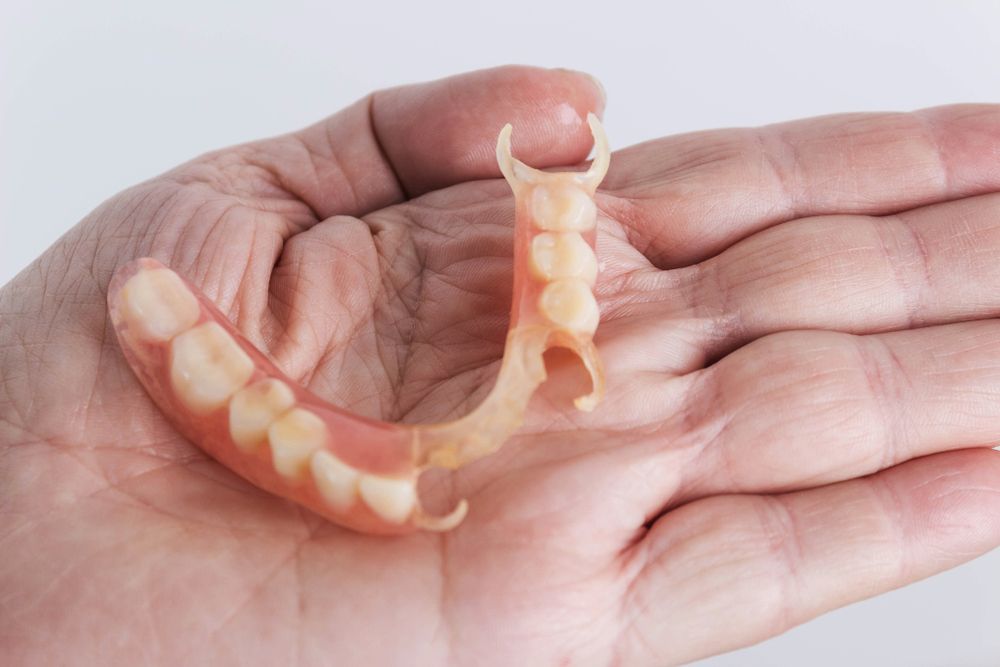Signs Your Dentures Need to Be Replaced
 When it comes to tooth replacement, full and partial dentures are an excellent cost-effective option. Made to last, these prostheses can restore your smile and your function for an improved quality of life. Although they are durable, they will not last forever.
When it comes to tooth replacement, full and partial dentures are an excellent cost-effective option. Made to last, these prostheses can restore your smile and your function for an improved quality of life. Although they are durable, they will not last forever.
How can you tell when it is time to consider a new set of dentures? Here, our team at Davis Dentistry in Scottsdale, AZ talks about common signs your dentures need to be replaced.
The Lifespan of Dentures: What to Expect
Dentures have been around for a long time. Today, they are made from the finest high-quality dental materials, ranging from acrylic to ceramic. No matter what your dentures are made of, they will need to be replaced at some point.
On average, patients should replace their dentures every seven to 10 years. In the meantime, routine assessments should be performed to ensure your denture is in good working condition. Occasional relines will probably be necessary as well, to keep your appliance fitting well.
Loose or Ill-fitting Dentures
One of the most common complaints among denture wearers is that their prostheses become loose and wobbly over time. This is the result of bone loss, which is a normal byproduct of tooth loss.
Over the years, the supporting bone ridge shrinks, causing your denture to become loose. If you notice your appliance slipping or shifting around more than it used to, it could be time to replace it.
Gum Irritation
Poorly fitting dentures can rub the gum tissue. Over time, this friction can cause lesions or sore spots. Unfortunately, these can make you more vulnerable to oral infections. If your dentures are starting to rub sore spots on your gums, you may need to replace them.
Pain or Discomfort
In addition to replacing missing teeth, dentures correct your bite and realign your jaw joints. As the supporting jawbone degenerates, the bite becomes more closed over time.
This new positioning, even though it may be slight, can be enough to trigger orofacial pain, headaches, earaches, shoulder and back pain, and more. These are all symptoms of TMJ disorder, and without treatment, they can worsen. If you are experiencing new or sudden pain, your dentures could be the culprit.
Dentures That Are Difficult to Keep Clean
Does food stick to your dentures when you remove them? This could be a sign that you need to replace them. When your dentures were originally crafted, they were designed to fit your oral anatomy at that time. Therefore, they created a tight seal with your gum tissue.
As bone atrophy continues over the years, a space can develop between the denture and the supporting bone ridge. As a result, food becomes trapped in the area.
In addition, hairline cracks can cause your denture to become discolored over time. Furthermore, these crevices can harbor bacteria, increasing your risk for certain oral infections, such as thrush.
Broken Dentures
Dentures may become broken if dropped or placed under excessive stress. If the fracture occurs in or around the artificial teeth, your prosthesis may be able to be repaired. If the damage is on the denture base, a new appliance may be required.
Patients should never attempt to repair dentures themselves. Repairing a denture is a delicate process that should only be performed by a trusted dental laboratory, as any discrepancy can lead to serious oral health issues.
Contact Us for More Information
Has it been a while since you’ve replaced your dentures? If so, a routine checkup at your dentist can help you keep your prosthesis looking and feeling good.
To learn more, schedule a consultation at our practice. You can contact us online or call us at (480) 595-1300.


